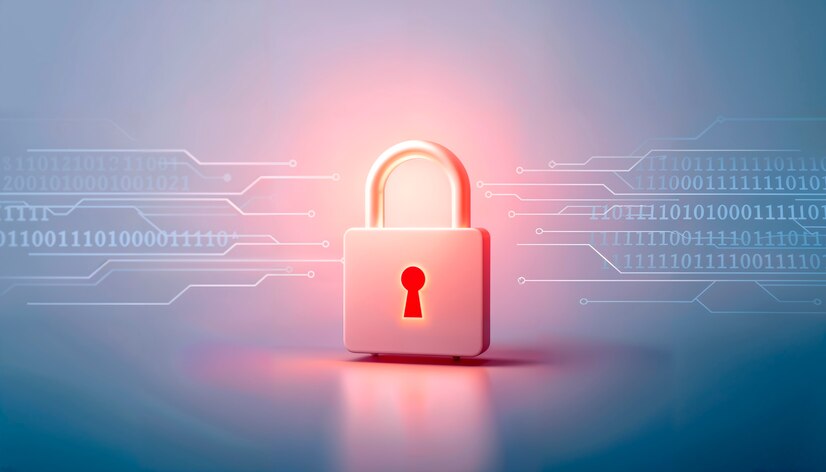I. Introduction
A. Overview of ISO 27001 Certification
ISO 27001 is the globally recognized standard for managing information security. It provides a systematic approach to securing sensitive company information, ensuring confidentiality, integrity, and availability. ISO 27001 outlines the requirements for establishing, implementing, maintaining, and continuously improving an Information Security Management System (ISMS). Achieving ISO 27001 certification demonstrates a commitment to safeguarding information from cyber threats, unauthorized access, and data breaches. It is not just a one-time achievement but a commitment to ongoing security practices, audits, and improvements.
B. Importance of Information Security in Today’s Digital World
In today’s hyper-connected world, data is one of the most valuable assets a business owns. From personal customer details to proprietary company information, the risk of data theft, hacking, or loss is a growing concern. Cyber-attacks, ransomware, and data breaches are becoming more frequent and sophisticated, leaving businesses vulnerable to significant financial, legal, and reputational damage. Information security is no longer optional—it is critical for business survival. Customers, partners, and regulators expect organizations to take the necessary steps to protect sensitive information. Failing to implement robust security measures not only exposes a company to risks but also erodes trust and credibility.
II. What is ISO 27001 Certification?
A. Definition of ISO 27001 Certification
ISO 27001 Certification is an international standard that outlines the best practices for establishing, implementing, maintaining, and improving an Information Security Management System (ISMS). The certification provides a clear framework for organizations to manage and protect their sensitive data. By adopting ISO 27001, businesses create a structured approach to identifying, assessing, and treating information security risks. An organization earns the certification after demonstrating its implementation of the standard’s requirements and effectively managing risks to safeguard the confidentiality, integrity, and availability of information. ISO 27001 serves as the global benchmark for information security. It is applicable to any organization, regardless of size, sector, or industry.
B. Key Principles of ISO 27001 Certification
ISO 27001 is built on several key principles that guide an organization’s approach to managing information security:
1. Risk Management
A core principle of ISO 27001 is the identification and management of risks. Organizations must systematically assess information security risks by evaluating the likelihood and impact of potential threats. After identifying these risks, they implement appropriate controls to mitigate them. This proactive approach ensures that organizations don’t just react to security breaches but also prepare for future risks.
2. Continuous Improvement
ISO 27001 operates on the Plan-Do-Check-Act (PDCA) cycle, which promotes continuous improvement of the ISMS. This cycle ensures that security practices are regularly reviewed and updated to respond to emerging threats and evolving business needs. Organizations are required to monitor and audit their information security practices regularly, making necessary improvements to maintain a high level of security.
3. Leadership Commitment
Successful implementation of ISO 27001 requires active involvement and commitment from senior leadership. Management is responsible for ensuring that information security is prioritized throughout the organization. This includes allocating resources, setting security objectives, and fostering a culture of security. Without strong leadership, efforts to protect sensitive data and comply with ISO 27001 are less likely to succeed.
4. Control Objectives and Security Controls
ISO 27001 specifies a set of control objectives and security controls that organizations must implement to safeguard information. These controls include measures like access management, encryption, and physical security. The implementation of these controls is tailored to the organization’s specific risk profile and business environment, ensuring they are appropriate and effective.
III. Benefits of ISO 27001 Certification
ISO 27001 certification provides organizations with a range of significant benefits that enhance their information security, compliance efforts, and market position. Below are some of the key advantages:
A. Enhanced Security Posture and Risk Management
1. Third-Party Validation of Security Practices
Achieving ISO 27001 certification means that an independent third party has thoroughly evaluated the organization’s information security management practices and confirmed they meet a rigorous set of standards. This external validation assures customers and partners that the organization has implemented comprehensive security controls and follows internationally accepted best practices.
2. Demonstrating a Commitment to Data Protection
In today’s world, data protection is a top priority for businesses and individuals alike. Customers, especially those in regulated industries like healthcare, finance, or government, are particularly sensitive to how their data is handled. ISO 27001 demonstrates a commitment to data protection by ensuring that the organization follows strict security protocols to protect sensitive information from unauthorized access, theft, or loss.
3. Building Long-Term Relationships and Trust
ISO 27001 certification helps build long-term, trust-based relationships with customers and business partners. As businesses increasingly rely on digital ecosystems and share sensitive data with external providers, having strong security practices in place becomes a critical factor in maintaining these relationships. Certification shows that an organization values the confidentiality, integrity, and availability of the data entrusted to it, which fosters trust over time.
4. Competitive Advantage in Customer Acquisition
In industries where data security is a major concern, ISO 27001 certification can be a decisive factor in attracting new customers. Potential clients are more likely to choose a certified organization over a competitor that does not have such credentials, especially when sensitive data is involved. ISO 27001 serves as a differentiator that highlights the organization’s commitment to secure practices and its ability to protect customer information.
B. Building Customer and Partner Confidence
ISO 27001 certification acts as a signal to customers, partners, and stakeholders that an organization takes information security seriously. It provides third-party validation that the organization has implemented best practices to protect sensitive data. This builds trust and credibility, which are crucial in today’s digital landscape, where data privacy concerns are top priorities for many customers. As businesses become increasingly aware of the risks of sharing data with vendors or partners, ISO 27001 certification can give them the confidence that their data will be handled with the highest level of security.
C. Reduced Business Risks and Costs
By proactively managing information security risks, ISO 27001 helps organizations reduce the likelihood of costly security breaches, data leaks, and business disruptions. The standard ensures that proper controls are in place to prevent unauthorized access, data loss, and cyber-attacks. These preventive measures can significantly reduce the costs associated with managing security incidents, including potential legal fees, fines, and reputation damage. Additionally, ISO 27001 encourages the efficient use of resources by focusing efforts on the highest risks, helping organizations avoid unnecessary expenditures on low-impact issues.
IV. Conclusion
A. Recap of the Importance of ISO 27001 Certification for Businesses
ISO 27001 certification provides organizations with a clear, structured approach to information security management. It enables businesses to protect critical assets, including personal data, intellectual property, and sensitive corporate information. The standard emphasizes risk management, continuous improvement, and compliance, helping organizations minimize the likelihood of security breaches and ensure they can respond effectively if incidents occur. Beyond risk reduction, ISO 27001 certification also boosts an organization’s credibility, builds customer trust, and helps maintain regulatory compliance. In an increasingly data-driven world, ISO 27001 is a vital tool for organizations looking to stay ahead of evolving security threats while demonstrating their commitment to the highest security standards.
B. Encouragement to Take the First Step: Starting the ISO 27001 Certification Process
The journey to ISO 27001 certification may seem daunting at first, but it begins with a single step: commitment. For organizations looking to improve their information security posture, starting the certification process is a smart move. Begin by assessing your current security practices, identifying risks, and developing an Information Security Management System (ISMS) that aligns with ISO 27001 requirements. ISO 27001 assists organizations in meeting legal and regulatory obligations regarding data protection. Achieving ISO 27001 certification demonstrates that an organization is taking the necessary steps to comply with these laws, reducing the risk of penalties for non-compliance. The benefits—ranging from enhanced security to improved customer trust—far outweigh the initial investment of time and resources.
C. Final Thoughts on Maintaining a Strong Information Security Culture
Achieving ISO 27001 certification is just the beginning. To truly benefit from the certification, organizations must continuously cultivate a strong information security culture. Security should be ingrained in the fabric of the organization, from top management down to every employee. Regular training, awareness programs, and audits are essential to ensuring that security measures remain effective and relevant as new threats emerge. A culture of security not only ensures ongoing compliance but also fosters a proactive approach to data protection, where everyone in the organization plays a role in securing sensitive information. By maintaining a strong information security culture, businesses can remain resilient in the face of security challenges and continue to safeguard their most valuable asset—information.





